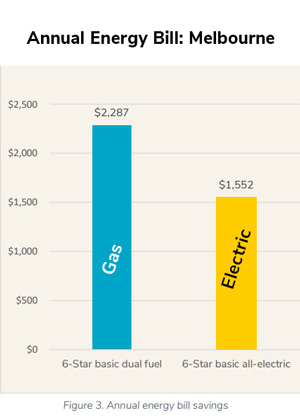The gas industry has spent decades bombarding us with ads featuring actors singing pro-gas jingles in steaming hot showers. But here’s the truth they don’t want you to hear: their arguments have been blown away by the rise of cheap, clean energy.
Ducted gas heating is now about the most expensive and polluting way to heat a home. Efficient electric appliances such as reverse cycle air conditioners are now much cheaper – and better for our climate too.
This is because fossil gas prices have risen dramatically since 2015 when Australia started exporting massive quantities of it. With sanctions on Russian gas and reduced supply from Bass Strait, they’ll only go up further.

This graph shows the huge explosion in Australia's gas exports since 2015, which has resulted in large price increases. Source: AEMO
For electricity, it’s the opposite. A November 2021 report by the Australian Energy Market Commission found that the use of clean energy and battery storage will reduce Victoria’s wholesale electricity prices by 39 per cent or about $200 per household in the three years to 2024.
Environment Victoria’s own research confirms that households save money by switching from gas to efficient electric heating. New homes with all-electric appliances save $700 per year on energy bills. If you make the house more efficient and add solar, you can save up to $1795 per year, cutting bills by up to 80 per cent.

One concern is that this means using more electricity, which in Victoria still comes mostly from burning coal. For years the gas industry has used this to claim gas was better for the environment.
But this is no longer true. 40% of our electricity already comes from wind, solar and hydro, and with this current electricity mix, an all-electric home has slightly lower emissions than one that burns gas. And because more clean energy is coming online every year an all-electric home’s emissions will continue falling.
Practical Tips
See our list of easy and low-cost options that can help anyone use less gas and cut their bills.
Finally, phasing out gas can help to stop new fossil fuel projects from being built, because it sends a signal to the market that future gas supply isn’t needed. If the demand isn’t there, gas companies can’t make a business case to invest in projects like drilling near the Twelve Apostles or building a floating gas import terminal in Geelong.
Victorian households burn more gas than any other sector – more than industry and far more than gas power stations. This means that consumers have great market leverage. If you switch away from gas, you’ll save money, reduce pollution, and help to stop destructive gas projects from going ahead.